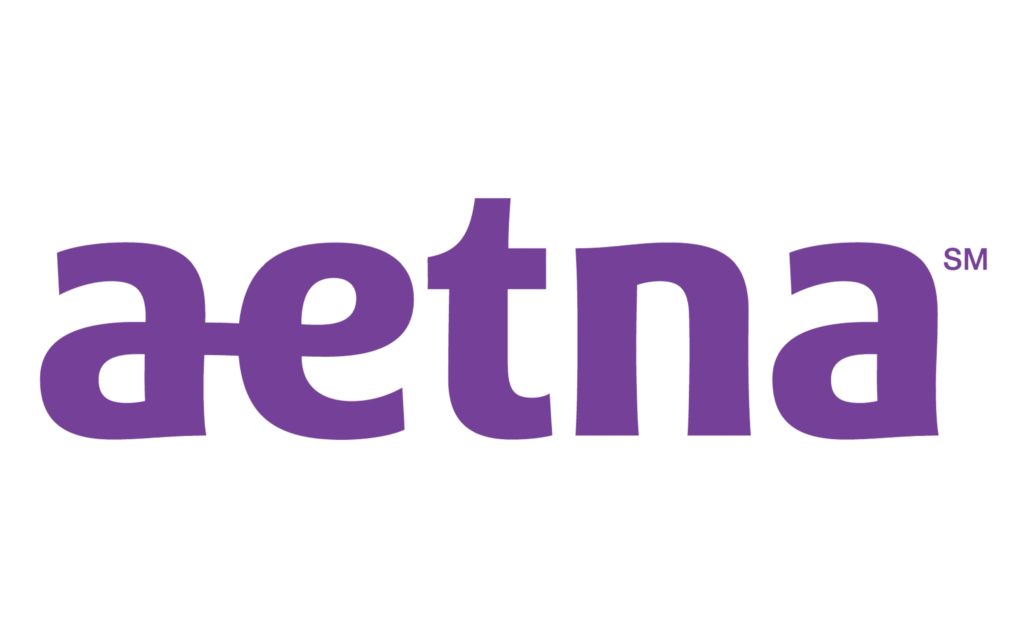Understanding Substance Use Disorder
Before implementing the best practices for assisting someone with addiction, it’s essential to fully understand the intricacies of substance use disorders.
Substance Use: A Public Health Issue
Substance use disorders have increasingly become a significant public health issue. Illicit and prescription drug addiction affect a broad range of populations, leading to a complex interplay of physical, psychological, and social repercussions. According to DrugRehab.com, these disorders are often linked with mental health conditions, further complicating the treatment process.
Taking a public health perspective allows us to view substance use disorders not as a moral failing, but as a manifestation of various risk factors and vulnerabilities. Understanding this can help in developing compassionate, effective strategies to support individuals battling addiction.
The Science Behind Addiction
At the core of substance use disorders is addiction, a condition that fundamentally alters brain function. As Health Partners explains, addiction can rewire the brain and distort an individual’s value system, leading to a dependency on substances.
The physiological alterations caused by addiction make it a disease rather than a choice. This understanding is crucial in shaping our approach towards individuals battling addiction. It emphasizes the need for support that is free of judgment and stigma, as these negative attitudes can foster feelings of shame and become barriers to recovery.
The journey to recovery from addiction is often long and challenging, characterized by gradual changes and potential relapses. Remembering that relapses are not failures, but rather indicators that the treatment approach may need adjustment, can help maintain a supportive and positive environment for the individual.
Understanding the science behind addiction can instill a sense of empathy and patience in those assisting individuals with substance use disorders. This knowledge, coupled with professional help and sound recovery resources, can greatly enhance the effectiveness of support efforts.
Recognizing Signs of Addiction
Being able to identify signs of addiction is crucial in the initial steps towards recovery. There are physical, behavioral, emotional, and psychological indicators that can suggest someone is struggling with a substance use disorder.
Physical and Behavioral Indicators
Physical and behavioral signs of substance use can vary widely depending on the substance used, duration of use, and the individual’s overall health. Noticing these signs early can be critical in helping someone seek the necessary help.
Physical signs of substance use may include:
- Unexplained weight loss or gain
- Bloodshot or glazed eyes
- Changes in pupil size
- Frequent nosebleeds (common with snorted substances)
- Shakes, tremors, or slurred speech
- Unusual odors on breath or clothing
- Decreased coordination or clumsiness
- Changes in sleep patterns
Behavioral signs may consist of:
- Changes in overall attitude or personality
- Changes in friends, hangouts, or hobbies
- Trouble at work or school
- Frequent legal troubles
- Secretive behavior, especially regarding whereabouts
- Unusual or unexplained need for money
These lists are not exhaustive and should be viewed as general indicators. If you notice any of these signs, it’s important to approach the situation with understanding and compassion, as addiction is a disease that rewires the brain and distorts the individual’s value system.
Emotional and Psychological Symptoms
In addition to physical and behavioral signs, emotional and psychological symptoms can also indicate a substance use disorder. These symptoms can often be more difficult to identify but are just as important in recognizing an addiction.
Emotional and psychological symptoms may include:
- Unexplained mood swings or emotional instability
- Increased anxiety, paranoia, or fear
- Lack of motivation or apathy
- Sudden outbursts or temper tantrums
- Feelings of despair or hopelessness
- Difficulty in maintaining relationships
Again, these lists are not exhaustive, and the presence of one or more of these symptoms does not necessarily mean an individual has a substance use disorder. However, these signs should not be ignored and, if persistent, should prompt further investigation.
Importantly, supporting a loved one in recovery requires empathy, understanding, and education about substance use disorder, interventions, and treatment methods. The journey to recovery is a gradual process, and setbacks, or relapses, should be viewed not as failures, but as indicators that the treatment approach may need adjustment.
Approaching a Loved One About Addiction
When dealing with someone who is suffering from a substance use disorder, it’s crucial to approach the conversation with empathy, understanding, and respect. This section will detail effective communication strategies and highlight the importance of avoiding enabling behaviors.
Effective Communication Strategies
To effectively assist someone with addiction, open, honest, and non-confrontational communication is key. It’s crucial to express concern without blaming or criticizing, keeping the focus on the individual’s behaviors rather than their identity. A judgment-free approach will make the person more likely to listen and accept help (The Priory of Tampa).
Moreover, self-education about addiction is essential to provide meaningful support. By understanding addiction not as a choice, but as a disease, family members can approach the situation with empathy and compassion.
Encouraging a loved one to seek professional help from addiction specialists, therapists, or treatment centers can also greatly increase their chances of recovery and provide necessary support (Laguna Treatment Center).
Avoiding Enabling Behaviors
Supporting a loved one with addiction also involves recognizing and avoiding enabling behaviors. Enabling refers to actions that protect the person with addiction from the full consequences of their behavior. This can perpetuate the addiction and hinder recovery efforts.
Setting boundaries is a crucial part of avoiding enabling behaviors. Clear boundaries should be established to protect both the supporter and the individual struggling with addiction. These boundaries should be accompanied by clear consequences if they are violated, which can help the individual realize the impact of their addiction (Laguna Treatment Center).
Taking care of oneself is also essential when helping someone with addiction, as it can be emotionally draining and overwhelming. Engaging in self-care practices, seeking support from other loved ones and professionals, and attending support groups like Al-Anon or Nar-Anon can provide valuable guidance and emotional support.
Through effective communication and avoiding enabling behaviors, loved ones can play a significant role in supporting someone struggling with addiction. It’s important to remember that recovery is a journey, and every person’s path to recovery is unique. Patience, compassion, and understanding are crucial components of the best practices for assisting someone with addiction.
Seeking Professional Help
Once the signs of addiction are recognized and the individual is willing to seek help, the next step is to find the right professional resources. These can range from treatment centers to therapy, each playing a crucial role in the recovery process.
Treatment Resources and Referrals
There are many resources available to help find the right treatment for substance use disorders. The website DrugRehab.com offers comprehensive information on illicit and prescription drug addiction, populations at risk, current statistics and trends, as well as psychological disorders commonly linked to addiction (DrugRehab.com).
Alternatively, the National Helpline provides a 24-hour, 365-day-a-year treatment referral and information service (in English and Spanish) for individuals and families facing mental and/or substance use disorders. The helpline is a confidential, free service that can refer you to local treatment facilities, support groups, and community-based organizations.
For direct assistance, you can call the National Helpline at 1-800-662-HELP (4357) or TTY: 1-800-487-4889.
Role of Therapy in Addiction Recovery
Therapy plays a vital role in addiction recovery. It provides an opportunity for individuals to explore the root causes of their addiction, learn effective coping strategies, and develop a plan for long-term recovery.
One of the promising advancements in therapy comes from technology-based interventions. These interventions can include computer-assisted behavior therapies, prevention interventions, and recovery support programs. They can be cost-effective and transcend geographic boundaries, allowing for on-demand access to therapeutic support outside of formal care settings (source).
For instance, the therapeutic education system, a web-based psychosocial skills training intervention for individuals with substance use disorders, has produced drug abstinence rates equivalent to comparable therapy delivered exclusively by highly trained clinicians.
Additionally, technology-based recovery support tools, such as Addiction CHESS (ACHESS), a smartphone-based recovery support system, have shown promise in reducing heavy drinking days and can be valuable relapse prevention aids (source).
In conclusion, seeking professional help is an essential step in the journey towards recovery from addiction. Whether through treatment centers, therapy, or technology-based interventions, the right resources can provide the necessary support for individuals to overcome addiction and work towards a healthier future.
Utilizing Technology in Recovery
As we continue to explore the best practices for assisting someone with addiction, it’s essential to understand the role of technology in recovery. From tech-based interventions to recovery support tools, technology offers promising avenues for addressing substance use disorders.
Tech-Based Interventions
Technology, such as the Internet and mobile phones, offers considerable promise for affecting the assessment, prevention, and treatment of, and recovery from substance use disorders. Tech-based interventions may include computer-assisted behavior therapies, prevention interventions (e.g., drug-abuse prevention, HIV-prevention programs), and recovery support programs. These programs may be cost-effective and transcend geographic boundaries, allowing for on-demand access to therapeutic support outside of formal care settings.
With 79% of Americans reporting regular use of the Internet and 83% subscribing to mobile phone services, the potential reach of these innovative technological interventions is enormous. They can greatly affect substance use and related behavioral health outcomes when developed in a manner that embraces evidence-based principles. For instance, the Therapeutic Education System, a web-based psychosocial skills training intervention for individuals with substance use disorders, has produced drug abstinence rates equivalent to comparable therapy delivered exclusively by highly trained clinicians.
Recovery Support Tools
Technology is not only useful for intervention but also for ongoing recovery support. Tech-based recovery tools, such as smartphone applications, can provide invaluable aid to individuals in recovery, offering resources and guidance at their fingertips.
A prominent example is Addiction CHESS (ACHESS), a smartphone-based recovery support system. This tool has shown promise in reducing heavy drinking days and can be a valuable asset in preventing relapse.
The utilization of technology in recovery is a rapidly growing field that is transforming the landscape of addiction treatment and support. As the technology continues to advance, it offers more opportunities for innovative interventions and support tools that can significantly impact the journey to recovery for someone with a substance use disorder.
Supporting Long-Term Recovery
Assisting someone with a substance use disorder extends beyond initial interventions and treatment. Long-term recovery support is a critical part of the journey, where loved ones can play an indispensable role. By understanding the nature of recovery and being prepared for potential challenges, supporters can provide effective assistance that aids in sustaining recovery.
Importance of Continuous Support
Recovery from addiction is a lifelong process, characterized by gradual changes and potential relapses. It’s essential to provide continuous support, understanding that relapses are not failures but indicators that the treatment approach may need adjustment (Health Partners).
Supporters can play a vital role by learning about substance use disorder, interventions, treatment methods, and mental health terms. This knowledge can better equip them to assist their loved ones effectively, by providing informed guidance, understanding, and emotional support.
Moreover, supporters can also assist in accessing professional help and resources from organizations that provide recovery resources. One can access these resources through official government websites such as those ending in .gov, ensuring that the information and assistance provided are from reputable sources (DEA Recovery Resources).
Dealing with Potential Relapses
Dealing with potential relapses is a significant aspect of long-term recovery support. It’s crucial for supporters to understand that relapses can occur and are not indicative of failure but rather a signal that the treatment approach may need to be adjusted.
During such times, maintaining a non-judgmental and supportive stance is critical. Encouraging the individual to seek professional help and reassess their treatment plan can be beneficial.
In addition, technology-based interventions targeting addiction recovery have shown great promise and can be valuable aids to prevent relapses. For instance, Addiction CHESS (ACHESS), a smartphone-based recovery support system, has been effective in reducing heavy drinking days.
Moreover, web-based interventions such as the therapeutic education system, a psychosocial skills training intervention for individuals with substance use disorders, have produced drug abstinence rates equivalent to therapy delivered exclusively by highly trained clinicians (source).
By embracing these best practices for assisting someone with addiction, supporters can provide invaluable help, facilitating a smoother journey towards recovery for their loved ones.
Self-Care for Supporters
Being a supporter for someone dealing with substance use disorders is not an easy task. It requires patience, understanding, and immense emotional strength. Therefore, prioritizing one’s own well-being is as crucial as focusing on the recovery of the loved one.
The Need for Personal Well-being
When involved in the recovery process of a loved one, it’s important to remember that neglecting one’s own physical, emotional, and mental well-being may lead to increased struggles with depression and anxiety. Therefore, personal well-being is an essential part of the best practices for assisting someone with addiction.
Supporting someone with addiction can be emotionally draining and overwhelming. Hence, engaging in self-care practices and seeking support from other loved ones and professionals is crucial for maintaining one’s well-being. It’s also important to remember that to be an effective supporter, one needs to be in good health, both physically and mentally.
Support Groups and Therapeutic Options
To ensure personal well-being while assisting someone with addiction, exploring various support groups and therapeutic options can be beneficial. Attending support groups like Al-Anon or Nar-Anon can provide valuable guidance, education, and emotional support to family members and loved ones of individuals struggling with addiction.
These groups offer a safe and supportive environment where loved ones of those struggling with addiction can share their experiences, learn from each other, and gain strength. They also provide education about addiction, its effects, and treatment options, which can help loved ones better understand the condition and be more empathetic and supportive in their approach.
Additionally, seeking professional help and support is essential for both the individual struggling with addiction and their family members. Consulting addiction specialists and therapists can provide guidance on the best ways to support recovery and maintain healthy relationships.
Remember, taking care of oneself is not a selfish act. On the contrary, it’s an essential part of providing the best support to a loved one dealing with addiction. By maintaining personal well-being and seeking support, one can be a more effective and compassionate caregiver, contributing positively to the recovery journey of their loved one.







